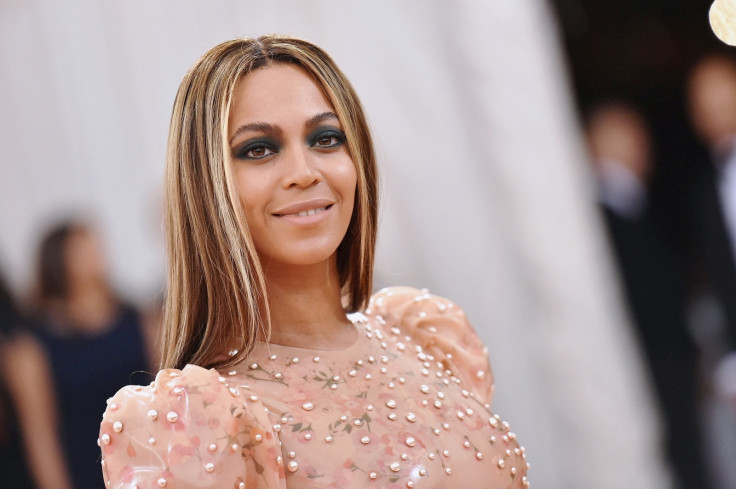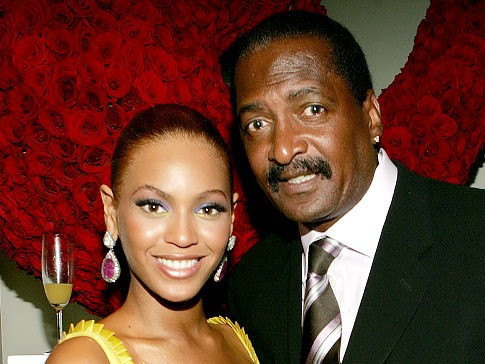What is colourism? Beyoncé wouldn't be successful if her skin was darker, says her dad

KEY POINTS
- Matthew Knowles said that most successful black women are all light-skinned.
- The comments have sparked a debate about colourism.
Beyonce's father, Matthew Knowles, recently made headlines for suggesting that his daughter would not be as successful if she had darker skin.
Knowles Sr, who recently released a book called Racism: From the Eyes of a Child, said that when he was younger he deliberately dated white or light-skinned black women who appeared to be white.
"I actually thought when I met Tina, my former wife, that she was white," he told Ebony magazine. "Later I found out that she wasn't, and she was actually very much in-tune with her blackness."
Sharing a vivid memory of his late mother he said: "When I was growing up, my mother used to say, 'Don't ever bring no nappy-head black girl to my house.'"
"In the deep South in the '50s, '60s and '70s, the shade of your blackness was considered important. So I, unfortunately, grew up hearing that message."
In what he called "eroticised rage", he explained that black men including himself felt anger that could only be dispelled by dating white women, as it felt like they finally became even.
He added: "When it comes to black females, who are the people who get their music played on pop radio? Mariah Carey, Rihanna, the female rapper Nicki Minaj, my kids [Beyoncé and Solange], and what do they all have in common?"
The comments have sparked a debate about the pervasiveness of colourism in society and how fair his claims were.
An issue that disproportionately impacts women of colour, it is a fairly nuanced form of racism that even people of colour can harbour themselves.
IBTimes UK spoke to Radhika Parameswaran, a professor of culture and media at Indiana University, who has written extensively on colourism in India - a country where colourism has long been a major issue.

What is colourism?
Parameswaran says: "Colourism has been defined as skin colour discrimination. And to talk about it more precisely, it's discrimination that targets dark-skinned people. And it's a form of discrimination in which dark-skinned people are seen as inferior, less beautiful, less competent, less intelligent, and less accomplished than light-skinned people."
This is often done through representation, or lack of it. On television, in movies and music videos, lighter skinned people are depicted not only more often but as the main characters, but as any other desirable role whether it's the "attractive love-interest" or the intelligent scientist.
The problematic effect of this seeps into multiple aspects of life including, most worryingly, the justice system, research has shown. A 2011 Villanova University study of more than 12,000 African American women imprisoned in North Carolina found that lighter-skinned black women received shorter sentences than their darker-skinned counterparts.
The 2011 colourism documentary Dark Girls. by American film-makers Bill Duke and D Channsin Berry, included an investigation based on a new version of the 1940s doll experiment by Kenneth and Mamie Clark, where children were asked to select a white or a black doll. In it, they showed how black children had internalised racist ideas and favoured light‑skinned dolls over dark-skinned dolls.
Where does colourism come from?

While cultural norms form for a number of reasons there are clear threads between ethnic groups when it comes to this issue. Parameswara highlighted the importance of colonialism in how people of colour view race. However, it isn't a straightforward relationship.
"You cannot assume that colourism means, 'White people are superior in every instance'. It's not so simplistic because of nationalism and anti-colonialism.
"For example, my paternal grandmother who lived with us did not think white people were always superior to her. As an upper-caste Hindu woman, she felt at times that everybody was inferior to her. But there is a general notion that whiteness does equate to capitalist, consumer, and scientific modernities, and certain kinds of achievements, like industrial and scientific advancements, are identified with Europeans.
"Those perceptions are still very much present, and of course there is a certain amount of admiration for all that and a desire to imitate those achievements and aspirations."
As for the media's influence, she calls it the effect of "contemporary globalisation". Both Asian and African nations have their own domestic culture, for example, but this is met with the influx of Western media such as movies, music and television, which depict a narrowed representation of beauty or intelligence.
Who is impacted by colourism?
"Basically, all minority non-white communities around the world, and women more than men."
What's more, it is an issue that has impacted people's confidence, their sense of self and how they are treated, from the day they are born to the day they die.
This was something Parameswara was met with head-first when she spoke to dark-skinned people in India.
"In talking to Indian women about this, first I discovered that it's emotionally very hard for them to talk about it. You have to ask many different kinds of questions and as an interviewer you have to be prepared to deal with the level of emotions women express.
"The kinds of things women talk about are they feel less than whole, they feel incomplete, they feel deficient, and they feel in some ways marginalised and cast out. For example a lot of them talk about being teased in school for being really dark-skinned. They would talk about how within the family they were seen as less than others. Many women would talk about being rejected in the arranged marriage system, being rejected three or four times."
As explored previously, this impacts more than beauty standards.
"You can see how for a really young girl who is going through transition to adulthood, and really developing a sense of who she is, being exposed to this sort of discrimination could have an enduring influence. Based on who they are, what class they belong to, what other avenues for success that they have, skin colour discrimination can have a differential impact."
For people with dark skin, they are presented as the bottom of the hierarchy from the minute they consume media.
Knowles' comments may have been tough to hear or seemingly offensive, but they were an honest account of his and many other people's experiences. You could argue he was simply shedding a light on an important issue.






















